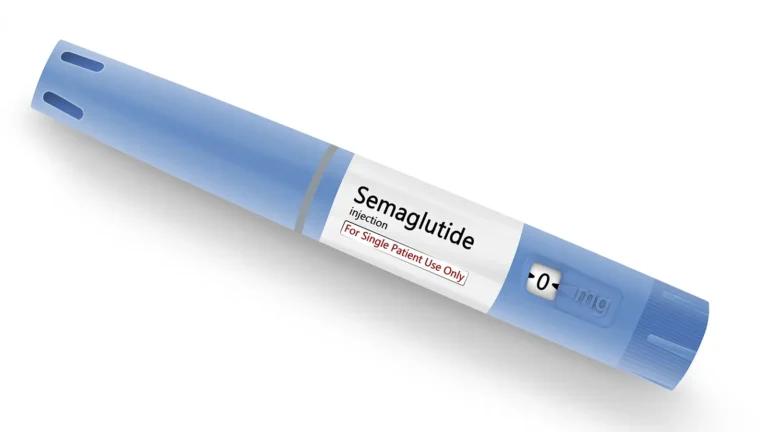
As the population ages, finding effective treatments for dementia has become a top priority. Dementia is a debilitating condition that affects millions of people worldwide. Although age is by far the greatest risk factor for dementia, obesity and type 2 diabetes are also major risk factors for developing the condition.
Recent research has shown promise in the use of glucagon-like peptide-1 (GLP-1) receptor agonists in reducing the incidence of dementia. GLP‐1 receptor agonists are used in the treatment of type 2 diabetes and obesity, where they effectively lower glucose levels, body weight, and risk of cardiovascular disease. In this article, we will explore the potential benefits of GLP-1 injections in slowing down the progression of dementia.
Understanding dementia and its link to diabetes
The prevalence and impact of dementia
Dementia is a broad term that encompasses various neurodegenerative disorders characterized by a decline in cognitive function. Alzheimer’s disease, Parkinson’s disease and Vascular dementia are the most common types of dementia. The prevalence of dementia is increasing globally and it poses significant challenges for individuals, families, and healthcare systems.
The link between type 2 diabetes and dementia
There is a strong association between type 2 diabetes and an increased risk of developing dementia. Individuals with diabetes have a higher likelihood of experiencing cognitive impairment and developing dementia compared to those without diabetes. Research is in the early stages and it will take years to determine if the drugs effectively prevent cognitive decline but chronic hyperglycemia, insulin resistance, and inflammation are believed to play significant roles. People with insulin resistance often have a group of conditions including high blood sugar, high blood pressure, and high cholesterol and triglycerides.
The role of GLP-1 receptor agonists in diabetes management
Introduction to GLP-1 receptor agonists
GLP-1 receptor agonists are a class of medications commonly used in the treatment of type 2 diabetes. All GLP-1 receptor agonists share common mechanisms of action. They work by mimicking the action of GLP-1, an intestinal incretin hormone that stimulates insulin secretion, reduces glucagon production, and promotes satiety. GLP-1 receptor agonists have been shown in clinical trials to effectively lower blood glucose levels, promote weight loss, and improve cardiovascular outcomes in individuals with diabetes.
Ozempic – a popular GLP-1 receptor agonist
Ozempic is a brand name for the prescription drug semaglutide and is manufactured by the drug company Novo Nordisk. It is approved by the Food and Drug Administration (FDA) as an injectable diabetes drug that is indicated as an adjunct to diet and exercise to improve glycemic control in type 2 diabetes patients. Ozempic is also approved to lower the risk of a major cardiovascular event (like a heart attack or stroke) in patients with type 2 diabetes.
Ozempic can be prescribed in combination with other diabetes medications such as metformin or as the sole treatment. It should not be used in patients with type 1 diabetes or for the treatment of diabetic ketoacidosis. Ozempic is the same medication as the popular weight loss drug Wegovy, just at a lower dose used for chronic weight management for overweight people with a body mass index (BMI) of 27 to 29.
Other GLP-1 receptor agonists include exenatide, dulaglutide, lixisenatide, liraglutide, and tirzepatide.
The potential neuroprotective effects of GLP-1
In recent years, researchers have discovered that GLP-1 and its receptor are not only present in the pancreas but also in the brain. Preclinical studies have demonstrated that GLP-1 receptor agonists have neuroprotective effects, including reducing neuroinflammation, promoting neurogenesis, and improving synaptic plasticity.
With brain diseases like Alzheimer’s, a protein called amyloid accumulates and forms plaques. These over time can affect cognitive function. Some scientists think that diabetes drugs may prevent amyloid buildup. These findings have sparked interest in exploring the potential benefits of GLP-1 receptor agonists in neurodegenerative disorders such as dementia.
Clinical evidence on GLP-1 injections and dementia risk reduction
Pooled data from randomized controlled trials
A pooled analysis of data from three randomized controlled trials investigated the link between GLP-1 receptor agonists and the incidence of dementia in individuals with type 2 diabetes. The analysis included a total of 15,820 patients and found that those randomized to receive GLP-1 receptor agonists had a significantly lower risk of developing dementia compared to those receiving a placebo. The hazard ratio for dementia incidence was 0.47 (95% confidence interval: 0.25-0.86) in favor of GLP-1 receptor agonists.
Real-world evidence from nationwide registries
In addition to randomized controlled trial data, real-world evidence from nationwide registries has provided further support for the potential benefits of GLP-1 receptor agonists in reducing the incidence of dementia. A Danish registry-based cohort study with 120,054 patients showed that the rate of dementia was lower in individuals with type 2 diabetes who were treated with GLP-1 receptor agonists compared to those who were not. The hazard ratio for dementia incidence with increasing exposure to GLP-1 receptor agonists was 0.89 (95% confidence interval: 0.86-0.93) per year.
Potential mechanisms behind the neuroprotective effects of GLP-1 injections
Modulation of neuroinflammation
Chronic neuroinflammation is a common feature of neurodegenerative diseases, including dementia. GLP-1 receptor agonists have been shown to suppress neuroinflammatory responses by reducing the production of pro-inflammatory cytokines and promoting the release of anti-inflammatory factors. These anti-inflammatory effects may contribute to the neuroprotective properties of GLP-1 receptor agonists.
Enhancement of brain insulin signaling
Insulin resistance in the brain has been implicated in the pathogenesis of dementia. GLP-1 receptor agonists have been found to enhance brain insulin signaling, leading to improved neuronal function and protection against neurodegeneration. By promoting insulin sensitivity in the brain, GLP-1 receptor agonists may help reduce the cognitive decline associated with dementia.
Promotion of neurogenesis and synaptic plasticity
Neurogenesis, the formation of new neurons, and synaptic plasticity, the ability of synapses to change and adapt, are crucial factors for maintaining cognitive function. GLP-1 receptor agonists have been shown to enhance neurogenesis and synaptic plasticity in preclinical studies. These effects may contribute to the preservation of cognitive function and the slowing down of dementia progression.
Safety and side effects of GLP-1 injections
Common side effects
Like all medications, GLP-1 receptor agonists can cause side effects. The most common side effects include nausea, vomiting, diarrhea, and transient decreases in appetite. These side effects are usually mild and diminish over time as the body adjusts to the medication.
Rare but potentially serious side effects reported in clinical studies include pancreatitis (inflammation of the pancreas), thyroid C-cell tumors, gallbladder problems and hypoglycemia (low blood sugar).
Cardiovascular safety
Cardiovascular safety is a major concern when considering any medication for individuals with diabetes. Fortunately, GLP-1 receptor agonists have been shown to have cardiovascular benefits, reducing the risk of major adverse cardiovascular events such as heart attack and stroke. This is particularly important for individuals with diabetes who are already at an increased risk of cardiovascular complications.
Conclusion and future directions
The evidence from both randomized controlled trials and real-world data suggests that GLP-1 receptor agonists, such as Ozempic, may have a role in reducing the incidence of dementia in individuals with type 2 diabetes. The neuroprotective effects of GLP-1 receptor agonists, including modulation of neuroinflammation, enhancement of brain insulin signaling and promotion of neurogenesis and synaptic plasticity, provide a strong case for further investigation. Future research should focus on elucidating the optimal dosing, timing, and duration of GLP-1 receptor agonist treatment for dementia prevention and management.
In conclusion, GLP-1 injections like Ozempic show promising potential in slowing down the progression of dementia in individuals with type 2 diabetes. While more research is needed to fully understand the mechanisms and optimize treatment strategies, these findings offer hope for individuals at risk of developing dementia. As the field continues to advance, GLP-1 receptor agonists may become an integral part of comprehensive dementia care, improving the quality of life for millions of people worldwide.
Sources
- Alzheimer’s: Ozempic and Similar Drugs May Help Decrease Dementia Risk
- Treatment with glucagon‐like peptide‐1 receptor agonists and incidence of dementia: Data from pooled double‐blind randomized controlled trials and nationwide disease and prescription registers – PMC
Medical Disclaimer
NowPatient has taken all reasonable steps to ensure that all material is factually accurate, complete, and current. However, the knowledge and experience of a qualified healthcare professional should always be sought after instead of using the information on this page. Before taking any drug, you should always speak to your doctor or another qualified healthcare provider.
The information provided here about medications is subject to change and is not meant to include all uses, precautions, warnings, directions, drug interactions, allergic reactions, or negative effects. The absence of warnings or other information for a particular medication does not imply that the medication or medication combination is appropriate for all patients or for all possible purposes.










